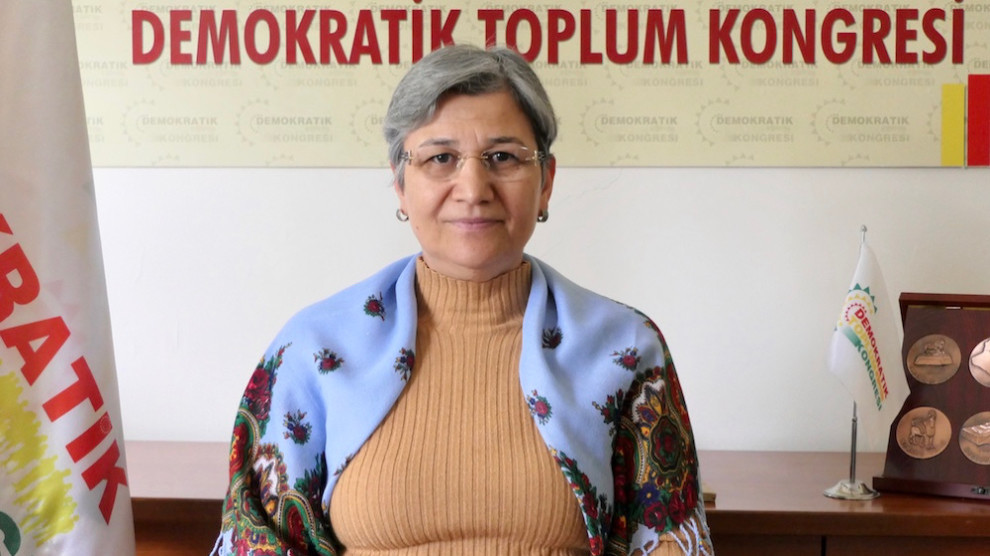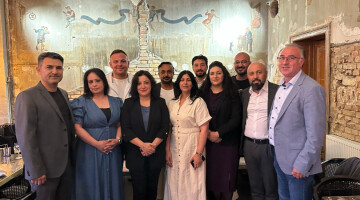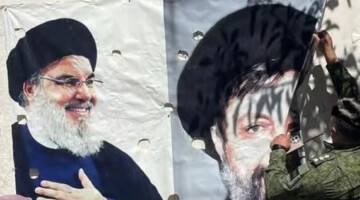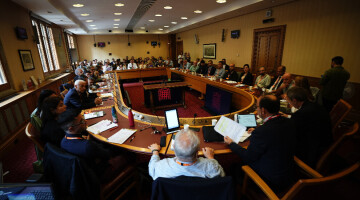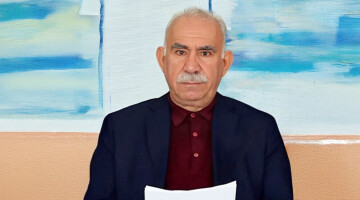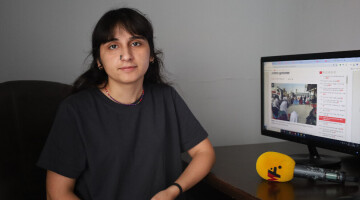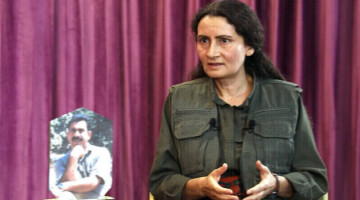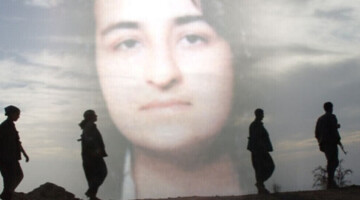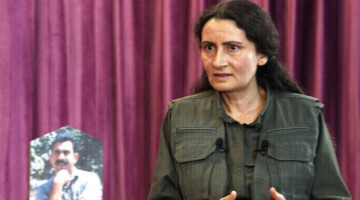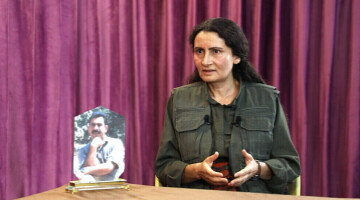On 5 March, Mehmet Öcalan reported in an interview on the recent meeting with his brother Abdullah Öcalan on the prison island of Imrali, which had taken place two days earlier. The Kurdish leader, who last had a consultation with his lawyers on August 7, 2019, spoke at the meeting about the Kurdish question and the AKP government's Syria policy, among other things. Öcalan focused on the strategy of the "third way", to which he ascribes a key role in solving all problems in the Middle East, and called for strengthening the organisation and struggle.
ANF spoke with HDP MP Leyla Güven, who is also co-chair of the civil society association DTK (Democratic Society Congress), about the remarks of Abdullah Öcalan. The politician, who from November 2018 to May 2019 led a worldwide hunger strike movement that briefly broke the eight-year isolation imposed on the PKK founder, first pointed out the international dimensions of the plot against Öcalan, which culminated in his deportation to Turkey in February 1999 in violation of international law.
"Öcalan's influence cannot be ignored"
"The goals of the powers involved in the kidnapping of Öcalan have come to nothing. Above all, it was Öcalan himself who thwarted these powers. But the Kurdish people also did their utmost to reverse the conspiracy in their sense, to achieve their aspired life in freedom and a democracy, a status and the enforcement of the solution of the Kurdish question.
But Öcalan's efforts in this regard have another dimension. In solitary confinement at Imrali, he wrote more than ten books and dozens of analyses. He did everything to get his thoughts outside. With a great deal of effort, he tried to push the resolution process forward for the state as well as for his organisation and his people.
The incommunicado detention has now lasted for 21 years and is getting worse and worse. There are only occasional visits to Öcalan. The Kurdish people know exactly what this isolation means and what it is aimed at. In the past, Öcalan's statements have mainly influenced Kurdish society. Now they have an impact throughout the Middle East. The Arab, Syriac, Armenian and many other peoples attach great importance to his thoughts.
The Middle East is a multi-identitarian region that has witnessed massacres throughout its history. Not a day goes by without terrible news from the states of the Middle East. Mass deaths are taking place and whole regions are being devastated by war. The Middle East with its history, its culture and its people is exposed to permanent genocide. Öcalan has dealt with this most intensively. Therefore, his isolation is getting worse and worse."
"His word affects millions"
Güven reminds of the Turkish Minister of the Interior's statements on the fire at Imrali, which were absolutely irresponsible. "As someone who has been appointed minister in this country, he knows very well that Öcalan is not just any prisoner. Öcalan's word affects millions. This has become more than clear in the so-called negotiation process that lasted three and a half years. That's why this statement has caused great concern."
On 27 February 2020, the Minister of the Interior made public in a live television broadcast that a fire had broken out on the island of Imrali. At that time the Imrali prisoners had been cut off from the outside world for almost seven months. Only after massive protests worldwide did the state finally have to give in and let the relatives of Öcalan and his fellow prisoners travel to the island.
"Öcalan's main concern is peace"
"After the recent meeting with Öcalan we have seen that he has not lost his will for peace and a solution in any way. As he said earlier, 'Let's not talk about my health, it's not a very important issue. What is important is the situation of our people, that this war stops and no more young people die. From what his brother Mehmet Öcalan told us, we can clearly say that Abdulah Öcalan raised very important issues and stressed that, if the will existed on the state’s side, the problem could be solved within a week.
"The message is addressed to both sides"
Leyla Güven pointed out that Öcalan considers the formation of a new democratic pole in Turkish politics necessary for the complete democratisation of Turkey. This pole - the Kurds together with the democratic and left-wing circles - should become the "third pillar" of the table with the other two power blocs in Turkey. All organisations and institutions would have to commit themselves as a third pillar to a solution.
"This is actually a message to both sides. It is addressed to the people of Turkey, who should know that the two-legged table can fall over at any time. That is why we must form the third leg in order to contribute to a solution. The message to the state is that you cannot do anything with a two-legged table. You cannot become a power in the Middle East nor can you do anything good for the people of Turkey. You will only break in a little more every day. Come and pay attention to the people who have come together for a third leg. Let them carry the table upright as a third leg so that a democratic solution can be found within the territorial integrity of Turkey.
"The AKP must leave its Kurdish hostility behind"
Güven further explained that all political and economic crises in Turkey are linked to the Kurdish question. As soon as it is solved, all other problems will be solved as well, she stressed.
"If we look at the current crises in Turkey, whether it is the economic crisis, the social crisis, the feminicides and the exploitation of labour: for all of them the Kurdish question is a decisive factor. Because a large part of Turkey's resources are being channelled into the war against the Kurds. And without normalisation, without peace with us, none of these problems can be solved.
"What does Turkey have to do in Syria?"
At the moment we are again asking ourselves what Turkey has to do in Syria. We ask this question to politicians all the time. What is Turkey doing in Syria when it has such huge unresolved problems of its own? Can it find a remedy? No. Yet it runs into the middle of the Idlib swamp. Turkey thought it could solve the problem with a few meetings with Iran and Russia while it was pulling together all the criminal gangs in Idlib. The dilemma in Idlib now makes it clear what it is all about: a policy of hostility against the Kurds. We must call a spade a spade. It's enemy law."
"Stop treating the Kurds like enemies"
Leyla Güven demands the withdrawal of Turkey from Syria and urges the government to end the enemy law, which is practiced against the Kurds. "The state appoints trustees over the Kurdish muniicipalities, arrests Kurdish politicians. It oppresses the people and also covers all its institutions with repression. And in Syria, it attacks Kurds and all other peoples. In Southern Kurdistan, the Turkish state is also attacking and operates a network of secret service agents. Why? Only because of the Kurdish hostility. Whenever we bring this up, the AKP thinks that it has nothing against Kurds, but we have to call it by its name, this is nothing else than Kurdish hostility.
"Neither AKP nor Russia will solve the problem"
The AKP is not ready for a solution, nor is Russia or the US. Both states are trying to make Turkey dependent on them and are pursuing a policy of 'the enemy of my enemy is my friend'. The images from Moscow were bitter for the Turkish government. The President of Turkey was humiliated. But the leadership of a country that accepts all this is not in a position to consider sitting down with the Kurds to find a solution.
"A Turkey making peace with Kurds would be an arbiter in the Middle East"
Güven concluded with the words: "A Turkey that makes peace with the Kurds would be an arbiter in the Middle East. We are dealing with a government that does not want a solution and is after short-term profit. It cannot go on like this. After 18 years in power, the AKP and MHP will soon be wiped off the stage of history. There is only one way out and Öcalan has named it. We must become the third pillar."

